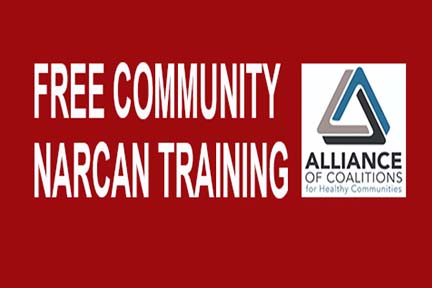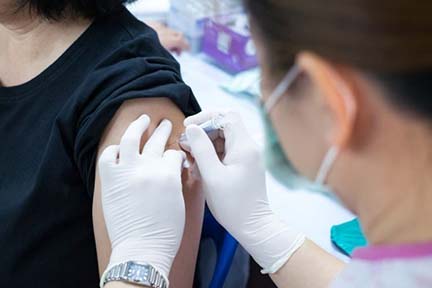|
Press Release
FOR IMMEDIATE RELEASE: April 13, 2022
CONTACT: Chelsea Wuth, 517-241-2112, [email protected]
Hometown Health Heroes and Jean Chabut Policy Champions honored by Michigan Public Health Week partnership
LANSING, Mich. – As part of National Public Health Week, ten individuals and organizations will be presented with the 2022 Hometown Health Hero and Jean Chabut Health Policy Champion awards for their contributions to protecting and improving the health of Michigan.
Hometown Health Hero awards are presented every spring as part of Michigan Public Health Week.
“Our Hometown Health Hero awards are a way for us to highlight selfless and dedicated champions of public health who are making incredible efforts to improve the lives of Michigan residents,” said MDHHS Director Elizabeth Hertel. “We celebrate all efforts, no matter how small or large, of health care professionals who make a positive impact on our state.”
2022 Jean Chabut Health Policy Champion Award
There are three recipients this year of the Jean Chabut Health Policy Champion Award. All share the same profession: they are health officers for local health departments in Michigan. These individuals were nominated either by a member of their staff or members of their community. They have demonstrated an untiring commitment to the health and safety of their communities.
Martha Hall, Lenawee County Health Department
Martha serves as the leader of the county health department and has been at the forefront of Lenawee County’s response to the COVID-19 pandemic. From the start of the pandemic in February 2020, she has worked tirelessly to protect local residents and has been the guiding force behind all efforts made by the Lenawee County Health Department to slow the spread of COVID-19. Martha has focused efforts on providing personal protective equipment to health care workers, providing consistent communication to the community offering best practices and up-to-date information to keep residents safe from COVID-19, increasing health department staffing levels to provide adequate case management and protecting vulnerable community members by organizing mass vaccination clinics.
Kathy Moore, Public Health Muskegon County
Kathy collaborated with community partners in the Muskegon area to make sure information was continuously available and accessible to members of her community. She has been able to respond to the area’s needs in a timely manner – taking calls early in the day to late at night. Kathy’s efforts included COVID-19 vaccination and testing sites, while being a source of accurate information for residents.
Dr. Annette Mercatante, St. Clair County Health Department
In St. Clair County, under the guidance and direction of Dr. Annette Mercatante, awareness of health equity, social determinants of health, adverse childhood events and convened communities (education, social services, substance use/prevention) increased. Additionally, her work with overdose and drug use has created a positive improvement within the St. Clair community as overdose numbers are declining. Her most compelling contributions are the community convening and conversations that are going on with groups aligning for similar missions to improve public health in a way that did not happen before Dr. Mercatante became both the public health officer and medical director 10 years ago.
Throughout the pandemic, Dr. Mercatante has made herself available and accessible to community and business leaders. She coordinated vaccination clinics, carefully tracked COVID-19 cases, issued mask mandates when necessary and coordinated the day-to-day county-wide response to COVID-19. Dr. Mercatante has ensured support for her staff’s mental health needs, and genuinely cares for her community. She was named “Blue Water Woman Medical Professional of the Year” due to her exceptional efforts to improve public health over the last decade.
2022 Hometown Health Hero Award Winners
Wil Cwikiel, Beaver Island
Wil Cwikiel, superintendent-principal of Beaver Island Community Schools, advocated with the local health department for COVID-19 vaccine clinics on Beaver Island, helped the local health department and his rural health center coordinate the clinics and allowed the use of school facilities for COVID-19 and general vaccination clinics. Despite having only a small rural health center and no hospital, in addition to physical and distance barriers, 85.8% of Beaver Island residents are fully vaccinated. In addition to promoting these clinics, Cwikiel volunteered at many of those held at his school while handling his day-to-day responsibilities when school was in session.
Need Our Water (NOW), Oscoda
Need Our Water (NOW) is a grassroots community action group made up of volunteers who are interested in the cleanup and preservation of Oscoda area natural resources from Per- and Polyfluoroalkyl Substances (PFAS) contamination and its harmful impacts to humans and wildlife. For more than five years, NOW has been working to increase awareness around PFAS in ground water and recreational waters and advocating for a health study or assessment that will add to the current research surrounding the health impacts caused by PFAS consumption and contamination.
Maria Militzer, Washtenaw County
Maria Militzer, president of Mexiquenses en Michigan, expanded their partnership with the Washtenaw County Health Department (WCHD) to address the community’s needs related to COVID-19, including access to vaccination and other resources. Advocates and activists connected with Mexiquenses en Michigan have lent their time, influence and resources to ensure that populations hardest hit by COVID-19 have access to vaccinations, personal protective equipment, including KN95 masks and transportation to vaccine appointments. The ongoing partnership with this organization ensures materials are made available in Spanish, and that interpreters and translators are consistently present at community clinics, often as volunteers. Since the beginning of the partnership with the WCHD, community-based COVID-19 vaccination clinics have been held in manufactured home communities, restaurants and places of worship in the areas most impacted by the pandemic.
Jennifer Stambaugh, Gratiot County
Jennifer Stambaugh has taken it upon herself to expand the services provided at the Children’s Advocacy Center in Gratiot County by adding tools and activities to the menu of services offered at the center.
These include:
- Development of a Care Process Model for assessing pediatric stress and suicidal ideation with the goal of triaging children and adolescents to appropriate levels of mental health care and treatment.
- Art therapy groups for high school and middle school adolescents who have disclosed sexual abuse or assault.
- Development of Master of Social Work and Bachelor of Social Work internship programs (for victim advocacy).
- Holiday assistance for families in need.
- Securing additional mental health providers to partner with in caring for the children and families who visit the Children’s Advocacy Center.
Veronica McNally, West Bloomfield
Veronica McNally is an attorney by profession, but in her spare time is the Founder and Director of the Franny Strong Foundation and an integral partner in the I Vaccinate campaign. She also serves as the only consumer representative on the U.S. Advisory Council on Immunization Practices (ACIP). McNally has reviewed and guided vaccination surveys and focus groups that have gauged parents’ questions and concerns about COVID-19 vaccines. She has used that input to ask questions and request data during the ACIP vaccination review process. McNally’s family launched the Franny Strong Foundation in honor of their daughter, and in 2016 they secured funding for what has become a revolutionary statewide public health campaign called I Vaccinate. The campaign is based on feedback from Michigan parents and bridges the knowledge gap between parents and health providers – providing parents with credible answers to their questions and the science-based information they need to protect their kids. This work led to her ACIP appointment, and her voice and experience have provided an invaluable perspective to the historic COVID-19 vaccine approval process.
Kelly Hostetler, St. Joseph County
In July 2021, Kelly Hostetler partnered with the St. Joseph County Health Commission’s Access to Healthcare Committee to design and execute a plan targeting the COVID-19 vaccination rate. The program provided COVID-19 vaccinations, free wellness screenings, a free dinner, $25 gift cards to local businesses for participants and vaccine hesitancy training to partnering agencies and community leaders. Hostetler also partnered with Swick Media to promote the clinics with pre-event advertising and day-of-event remote broadcasts. Through these efforts the vaccination rate improved to over 50% with one dose of vaccine by Oct. 3, 2021.
Volunteer Contact Tracers for MDHHS
This group of residents have served as volunteer COVID-19 contact tracers for MDHHS since May 2020. They dedicated more than 150 hours of their own time to help support contact tracing efforts before permanent staff were in place, and provided feedback on the technology and scripts and called thousands of people in Michigan about their COVID-19 status.
These dedicated volunteers include:
Ellen Ives
Susan Morrel-Samuels
Tim Reade
Deborah Brunelle
Patti Kelly
Alice Schuman
Amy Singer
Dawn Ferran
Elizabeth Anderson
Karen Pfeffer
Mary Ann Borton
Richard Bauer
Sarah Walsh
Virginia Maturen
John Bouck
Karen McGrath
Meresa Salisbury
Amy Olszewski
Karen Jennings
Mary Lynam
Barbara Byrne |





